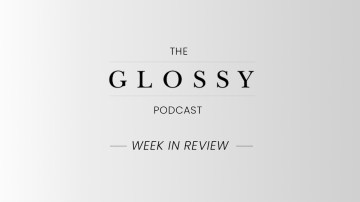L’Oréal announced Friday that it acquired the augmented reality platform ModiFace, becoming the first technology company purchased by the global beauty conglomerate and serving as a testament to the rapid growth of AR within the industry.
Lubomira Rochet, chief digital officer of L’Oréal, said the acquisition marks the next phase of L’Oréal’s digital growth plan, with a focus on investing in research and development after concluding a recent overhaul of its e-commerce and marketing strategies. Though L’Oréal has partnered with large technology companies in the past such as Google and Alibaba, the acquisition will bring ModiFace in-house and give the company a significant edge over its competitors. Since it was founded in 2001, ModiFace has worked closely with L’Oréal, as well as brands like Covergirl, Sephora and Ulta on a variety of mobile app and in-store activations.
“We believe brands, products and services will come together to create a store of the future using technology such as AR, artificial intelligence and conversational commerce,” she said. “This is why, for us, this is a natural step to acquire ModiFace. By doing so, we create an internal R&D capability for digital services.”
Parham Aarabi, CEO and founder of ModiFace, said the acquisition will advance the scale and capabilities of the platform, which allows consumers to virtually “try on” cosmetic products. While fashion brands have experimented with AR in recent years to varying degrees of success, beauty has been able to capitalize on the technology, thanks in large part to ModiFace.
“Beauty is all about the visual impression of products, and AR fits this field perfectly with the ability to preview looks, products and shades,” Aarabi said. “AR is a technology that really does make sense for the use case of beauty products.”
Toronto-based ModiFace will remain in Canada while operating as part of L’Oréal’s Digital Services Factory, the innovation arm of the company. Aarabi said the effort felt like a natural move for the brand, which has been working with L’Oréal for the past 10 years. It also provides the added advantage of giving ModiFace access to a wider pool of resources while working with one of the largest global beauty brands.
“The consumer beauty experience is being totally reinvented through new tech such as AR, AI and voice enabling,” he said. “There are more and more personalized and omnichannel experiences to help our consumers discover, chose, try, and buy our products and our brands. We want to pioneer this new wave of innovations in the beauty industry together with L’Oréal and our network of internal and external partners within the Digital Services Factory.”
Ultimately, Rochet said collaborating with technology partners and creating a more robust digital network will be a top focus for L’Oréal. In addition to the ModiFace acquisition, she said the brand plans to continue to invest in accelerators and incubators that foster innovation and talent.
“This is the first non-beauty brand the company has acquired, and it’s a very important moment in our digital transformation,” she said. “Digital technology is completely reshaping the beauty industry, and having access to new technologies and innovative players will be a huge competitive advantage.”



